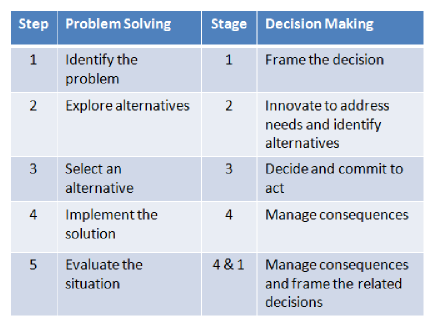This Choice Dilemma: How to Create Better Choices
In a world filled with endless choices, from what to eat for breakfast to critical career moves, the process of decision-making can often feel overwhelming. The choice paradox indicates that while having options is generally a good thing, too many can lead to uncertainty and regret. Many people struggle with making decisions, worried about the consequences of their choices and yielding to analysis paralysis. Understanding the intricacies of decision-making is essential not only for individual fulfillment but also for career success.
Perfecting the art of effective decision-making involves a combination of strategies, frameworks, and the appropriate mindset. By exploring how psychology plays a role in our decisions and learning to navigate the pressures of choice, we can enhance our ability to make decisive selections. Whether it is honing emotional intelligence, employing strategic frameworks, or simply forming daily habits to improve clarity, there are numerous ways to develop decision-making skills that can lead to superior outcomes in both our private and professional lives.
Proven Strategies for Wise Decision-Making
Choosing sound decisions requires a deliberate methodology. One powerful method is to employ a decision-making framework, like the DECIDE model that stands for Define, Explore. By breaking down the decision making procedure into these defined stages, people can focus on each aspect without feeling overwhelmed. This method allows for thorough analysis of options and aids in articulating the goals, rendering the path to a decision more obvious and more structured.
An additional valuable technique is to harness the power of assessment by balancing the advantages and cons of each alternative. Making a basic list can facilitate a clearer grasp of possible consequences. It can also emphasize the key factors shaping the outcome, leading individuals towards a more informed decision. Furthermore, this approach aids reduce decision fatigue by simplifying the path and facilitating for a clearer deliberation on critical factors rather than wandering in details.
Lastly, practicing mindfulness can significantly boost decision making. By devoting a moment to stop and evaluate, one can generate space to consider emotions and biases affecting their judgments. Mindfulness promotes a level of awareness that permits decision-makers to approach choices with greater transparency and self-assurance. This method not only assists in arriving at wiser decisions, but also cultivates a optimistic mindset for facing future choices.
Comprehending the Psychological Aspects of Decisions
Choices are an intrinsic part of our everyday lives, influencing everything from mundane decisions to major ones. Comprehending the psychology behind these decisions reveals how mental shortcuts, feelings, and social influences can affect our choices. Recognizing these factors equips individuals to handle their selections more successfully, allowing for outcomes that are more consistent with their true preferences and values.
One typical psychological factor influencing decision-making is the concept of cognitive fatigue. As we make choices throughout the day, our mental resources begin to diminish, causing worse decisions over time. This exhaustion can make it difficult to evaluate options objectively and may result in opting for less demanding, suboptimal choices. Awareness of this limitation can help individuals organize their decision-making processes to favor important decisions sooner in the morning or divide complex decisions into feasible steps.
Another crucial aspect is the role of emotions and gut feelings in decision-making. While rational thinking is important, emotions often guide our likes more than we realize. Recognizing the relationship between emotions and logical reasoning can enhance the quality of decisions, enabling individuals to weigh gut feelings with analytical thinking. By training oneself to recognize these emotional triggers, one can arrive at more thoughtful and satisfying decisions while keeping clear thinking and self-assurance amidst uncertainty.
The Impact of Gut Feelings and Rationality on Decision-Making
Intuition and logic are a pair of vital elements of the decision-making process, both influencing how we arrive at choices in distinct ways. Gut feelings, often described as a hunch, draws upon our subconscious experiences and knowledge accumulated over time. It allows us to make snap decisions in uncertain or rapidly changing situations, relying on recognizing patterns and emotional signals. While intuition can lead to quick and effective decisions, it may also be prone to biases and mistakes, particularly when emotions run high or when faced with unfamiliar scenarios.

On the other hand, logic involves a more organized approach to decision making, highlighting analytical thinking and rational analysis. Utilizing models and systematic methods, logical decision-making allows individuals to weigh pros and cons, evaluate evidence, and consider future consequences. improve decision-making can help mitigate the dangers associated with purely gut-based decisions, leading to more well-reasoned outcomes. However, an overreliance on logic can lead to overthinking, where too much deliberation hampers the capacity to make timely choices.
Finding a balance between gut feelings and logic is essential for effective decision making. Leveraging gut instincts can enhance our capability to respond swiftly, especially in high-pressure scenarios, while incorporating logical analysis ensures that our choices are solid and well-considered. By training ourselves to recognize when to trust our intuition and when to apply critical reasoning, we can become more adept at maneuvering through the complexities of both personal and professional choices. leadership decision-making empowers us to make better decisions that align with our objectives and values.